#The Killing Joke
Text

we're going to kill each other, aren't we?
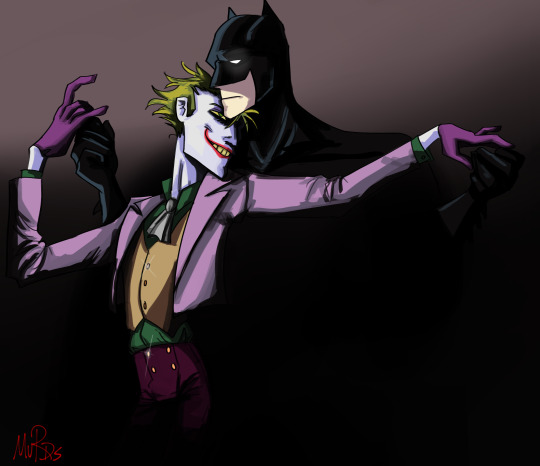
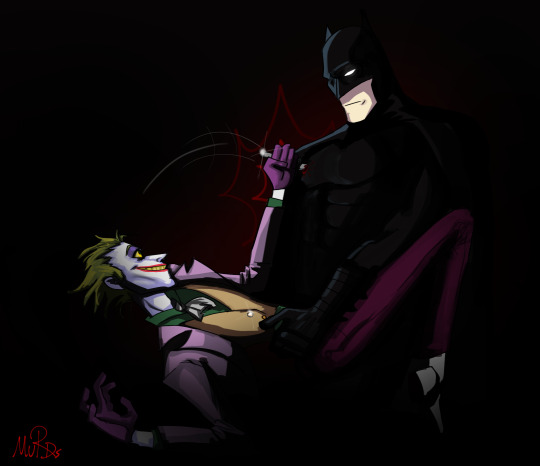

433 notes
·
View notes
Photo

866 notes
·
View notes
Photo
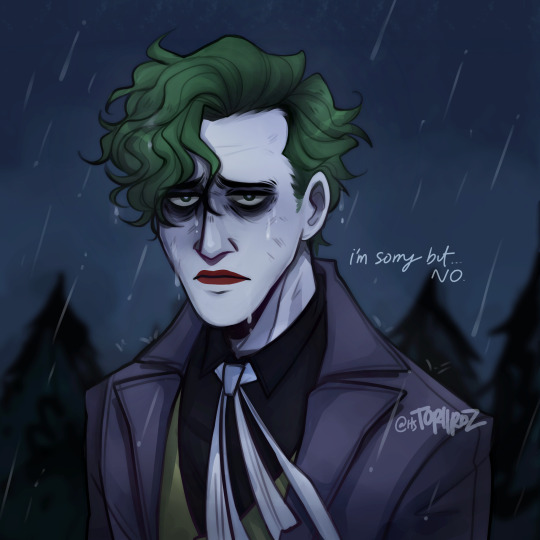
the killing joke study i did a while ago.
806 notes
·
View notes
Text
Pre-Joker (Jack Napier) / Joker from the years
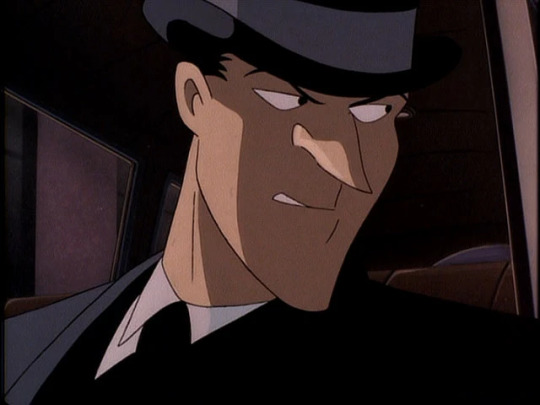

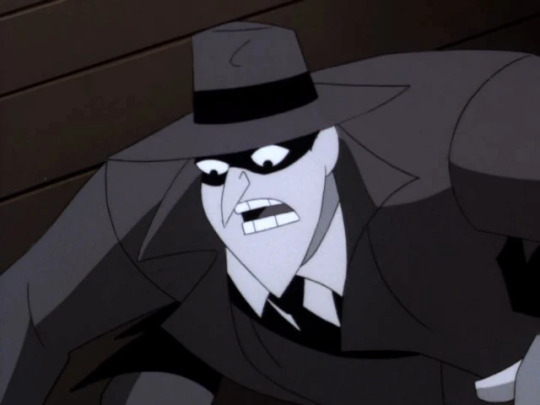
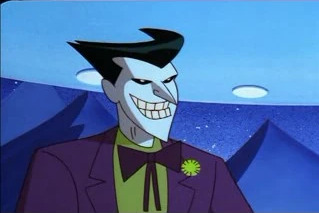
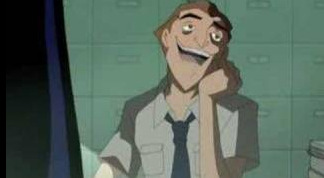

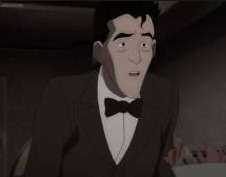

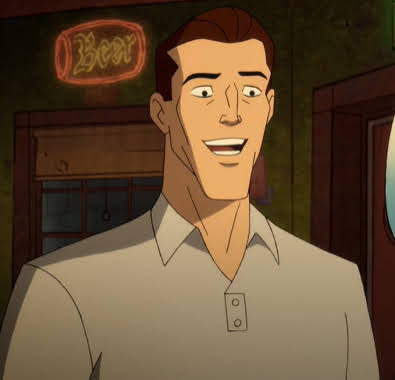
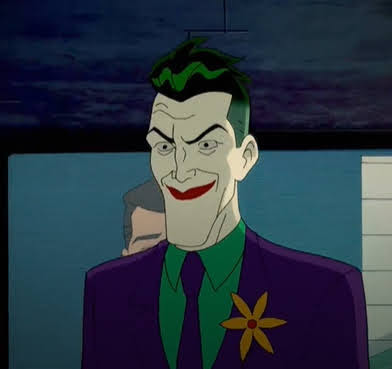
#the joker#joker#dc#batman joker#btas joker#tnba joker#btas#tnba#harley quinn the animated series#the killing joke#jack napier#batman#the batman 2004#batman 2004 joker#dc comics
235 notes
·
View notes
Text

#joker#jack white#clown prince of crime#the joker#dc joker#dc villains#dc universe#dc comics#dc rogues#dc nation#dc icons#dc gotham#gotham city#gotham villains#gotham rogues#batman villains#batman rogues#the killing joke#batman the killing joke#villains#rogues#dc#dcu#dceu#smile#smile bitch#say cheese#mental health is shit rn#actually mentally ill#i am the murderer’ as jury hears teacher stabbed 11 times
68 notes
·
View notes
Text

Batman: The Killing Joke
Words: Alan Moore
Art: Brian Bolland
#batman#the joker#the killing joke#alan moore#brian bolland#comics#dc#from the badlands#from the b-movie badlands
39 notes
·
View notes
Text
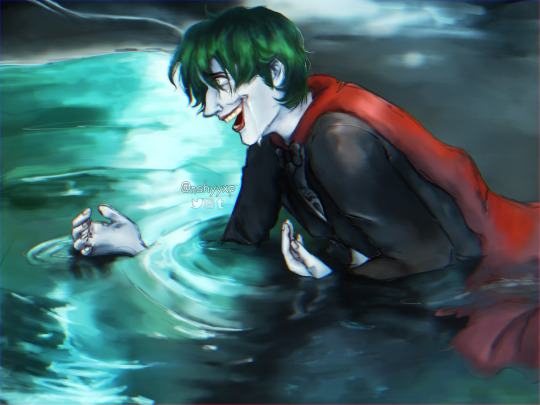
"All it takes is one bad day to reduce the sanest man alive to lunacy"
54 notes
·
View notes
Text


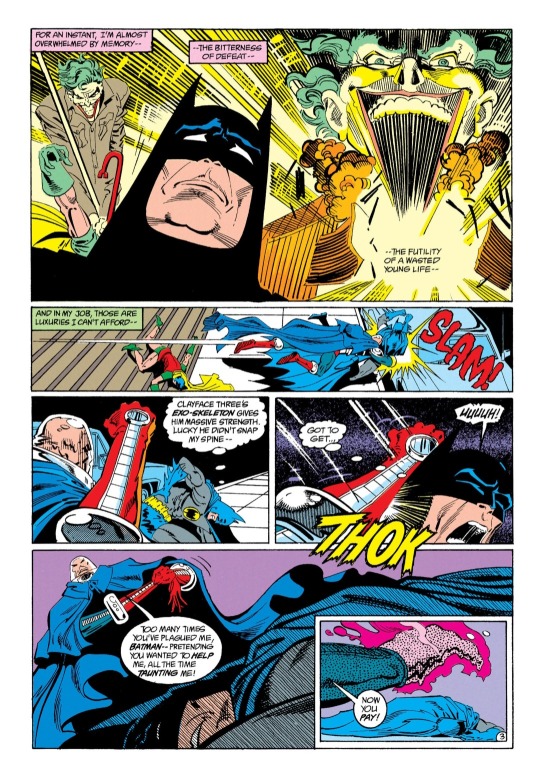

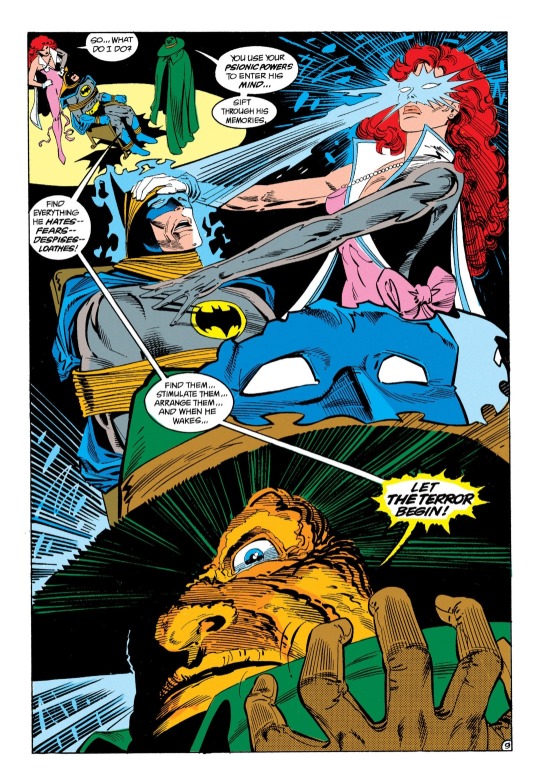





"Robin is dead. Intelectually, I know it's just a Clayface trick, but emotionally, it's a shock... Robin is only a kid. Was only a kid... For an instant, I'm almost overwhelmed by memory-- the bitterness of defeat-- the futility of a wasted young life."
Detective Comics: The Mud Pack. Part 3 of 4. #606.
#dc comics#batman#detective comics#bruce wayne#robin jason todd#jason todd#jason's death#clayface#death in the family#the killing joke#crime alley#barbara gordon#the joker
37 notes
·
View notes
Text
Happy halloween everyone! I brought this shitty oneshot, so try and enjoy!
Joker x reader
Gn!reader, spooky themes?

It was late, maybe around 11 am.
You were still up, you were happy to see all the happy children who came to trick or treat.
You thought no one would come at this hour but then you heard a knock on ur door.
You went up with a bowl of candy thinking its another group.
But when you opened the door, you swear your heart skipped a beat.
Infront of you standed a tall man, with purple suit and green hair.
No, this must be a joke right? It must be, it can't be the real one..?
You took a big breath as you started speaking.
"Wow accurate cosplay! You scared me for a sec!"
You smiled nervously, praying it ism't him. Half of his face was covered in shadow so you weren't sure.
His smile widened as he look straight into your eyes.
"Oh but i am the real thing!"
Your smile faded as you heard the similar voice.
You were about to shut the door. He saw how you were about to react so he stepped in which made you take a few steps back dropping the bowl of candy.
He loocked the door as he looked back at you.
He giggled as he came up close to you.
You froze down, thoughts racing thought your head. Was he about to kill you? Why is he here? Why you of all people who have to deal w this at 11 am?
The thoughts stopped as you felt his gloved hand caress your face. He gave you a soft expression.
"You have no idea how long i've been wanting to have you"
Your eyes widened. Trying to understand what hes talking about.
Both of his hand caressed your face now, he pulled you close to kiss you.
You were dumbfolded
He hugs you close.
"Now you're all mine"
He caressed your back as he cuddled you.
As he pulled away he gave you the softest look, and you couldn't help but feel butterflies.
He saw how your face got red, and that inspired him to keep going.
Imagine whatever you want to happen after that, but i might write an ending if ya'll want me too
#joker x reader#the joker#the joker x reader#joker#the joker x gn reader#joker x gn reader#the killing joke joker#the killing joke#animated joker
58 notes
·
View notes
Text
Wild to me that Jason Todd and Barbara Gordon both had their respective Joker-caused traumas happen IN THE SAME IRL YEAR, that in-universe both of them were canonically attacked to get at Batman specifically rather than attacked due to anything about themselves (okay well Babs was attacked to get at Gordon to get at Batman, but, you know), thag out-of-universe they were crippled/killed off as publicity stunts…
…and yet DC refused to let them interact once Jason was resurrected and STILL refuses to let them share page-time unless it’s in some way romantic…because there’s absolutely no way that a man and a woman could legitimately bond over shared experiences without it being in some way romantic, right?
#Jason Todd#Barbara Gordon#A Death in the Family#The Killing Joke#sexism in comics#it’s just sexism all the way down baybeeee.#this makes me feel angry!#ALSO DC IGNORING SUCH A WEALTH OF POTENTIAL CHARACTER INTERACTION INFURIATES ME!!!#you don’t have to tell ‘Batman beats up his kids for the 50th time’ like you could tell a different story!!!
203 notes
·
View notes
Text
I'm angry
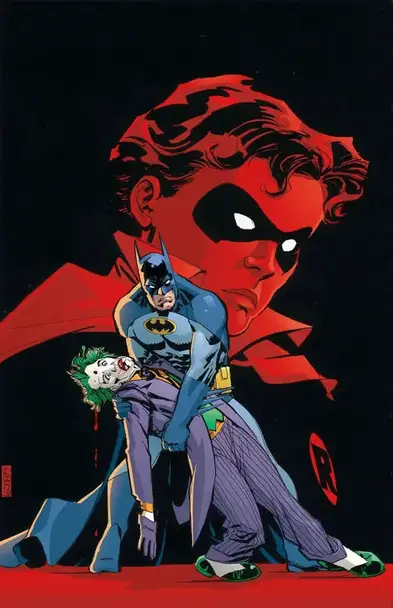
Currently they will do a "What if" of what would happen if the Joker had not killed Jason...
Don't get me wrong, I think it's a wonderful idea.
But it made me think of a "What if" at the end of the killing joke!!
Possibly all Batjokes fans will have some AU or some HeadCanons about this
But I think this would be the perfect opportunity to do it!!
Or perhaps a comic series dealing with these things. For example: What would happen if Batman had saved Red Hood (Joker) from falling into the chemicals?
I think comics like Robin Lives, or these ideas could perfectly be in a compilation.
32 notes
·
View notes
Note
How much does the fact that Moore himself considers "The Killing Joke" one of his greatest writing regrets factor into your thoughts on it?
I mean, I can see why he would have a lot of regrets about it because of the climate of the time and the infamous "cripple the bitch" exchange, and, obviously, because it steered the Joker as a character into the much darker and edgier version we know today and set a lot of nasty precedents in comics with a proliferation of violence against women as shock value. It basically created this situation where everyone wanted their writing to have the impact of Alan Moore, but unfortunately, they weren't Alan Moore and were in fact just kind of sexist dickbags for whom the actual horror and emotional impact of the dark content of the stories is transformed into the cheap and exploitative--I guess the TL;DR version of it is, Alan Moore is George R. R. Martin, but if GRRM realized his writing spawned 800 David Benioffs and D.B Weisses who would go on to define the fantasy genre for the next three decades. I'd be full of regret, too.
I think for me, not to like, disparage Moore or anything, but I do feel like the Comics Code created the atmosphere that was primed for him to have this massive splash on comics: Readers were hungry for stories with drama, lasting impact on characters, confrontation with uncomfortable questions that had long been more or less brushed off by virtue of the temporariness of the medium and the suffocating rules of the comics code. And Moore's content fit the bill.
If it wasn't Moore, it would have been someone else, but I'm honestly kind of glad it was Moore. It's even kind of funny in a morbid way, considering Moore was more or less over superheroes as a genre to begin with--but as I've talked about with my posts with early superman, the edges of superheroes as a genre is porous. I've talked about Superman being a Screwball romantic comedy in a sci-fi setting, so it's not unthinkable that Moore would end up dragging the conventions of the superhero genre to darker places by incorporating more elements of horror, pulp, crime noir, and even some Lynchian soap opera/gothic elements. I mean, it's equal parts fascinating and painful, because even though it sent comics down this dark copycat path, it really should have revealed how remarkable it is you can plug other genres' storytelling conventions into the superhero genre. Moore's stories slap not because they're Superhero stories, but because he's plugging superheroes into his stylistic/genre comfort zone.
But also the thing is, I'm one of those people who prefers Barbara Gordon as Oracle rather than Batgirl, and I do feel like the core of the Killing Joke is really more about the folie a deux of Batman and the Joker and I genuinely really like that. I also think that as we (rightfully) get caught up in the horror of the position Barbara is put in, we completely brush over the fact that Commissioner Gordon was literally being lead around naked on a leash. All the outrage I ever heard about the Killing Joke was Barbara getting crippled and the photos, literally no one mentioned Jim Gordon being lead around naked on a leash and kept in a circus cage! Like, is that not also a shocking violation of his personhood? I think both Gordons were meant to be seen as a unit, they were both humiliated and dehumanized, and they both represent two sides of Batman--Barbara representing that childish, powerful emotional core, the kid in a Halloween costume who hopes if they punch enough faces they can bring daddy back, and Jim representing Batman having to be an adult, having to recognize the boundaries of the law, and having to act as a guardian. Like, yes, Barbara and Jim, are obviously, to their credit, brilliant detectives, but they're also placed in these relationships to Batman of 'mentee' and 'Mentor/Partner.' For the Joker, it wasn't about using Barbara to hurt Batman and Jim, so much as it was about using *Barbara and Jim* to harm Batman. But that's also why ultimately the Joker's focus fell on Jim in relation to Batman--Jim Gordon represents these adult, institutional realities, the idea that ultimately you have to work to protect a society, and Joker wanted to use the adult who represents accountability to that society to prove his whole "One bad day" philosophy. the Joker basically goes through his most famous version of his whole "One Bad Day/Society is a Joke" spiel in that comic. I was going somewhere with this. This was going to link back to Moore somehow--Ah well. See above point of, "Genre-impact wise, I can see why he would have regret about it. But also I think those genre impacts were due in large part to people only valuing the story for its shock value and you can try to make yourself as simultaneously clear and representative of your personal style as possible, but that's not going to stop The Point from flying right over people's heads." Something something "Wow cool robot!" comic.
There is so goddamn much to unpack in The Killing Joke, both in its textual relations to the characters and the potential inspirations Moore was working from, and in its impact on comics. I feel like I'm gnawing on a big mutton bone.
51 notes
·
View notes
Text
Three Jokers Are Not Better Than One
(or, cheap twists don't make a good story)

Would you look at that? It's time to bitch about Three Jokers!
(spoilers for a 3-year-old comic ahead)
Gotham War got me into hater mode, so I figured it was time to take a second look at Three Jokers, written by Geoff Johns and drawn by Jason Fabok. I first read it when the issues came out, and I thought it was possible that the story isn't as bad as I remembered. I don't know why, since for the past three years I've been haunted by the possibility of it being deemed canon.
Of course, at the time of conception, Three Jokers was intended to be canon. Johns set up the premise in the Darkseid War storyline of the 2011 Justice League run, in issues published in 2015/2016. Batman takes control of the omniscient Mobius Chair, and he tests it by asking who killed his parents. Then he asks a second question, which Hal Jordan presses him on several issues later.
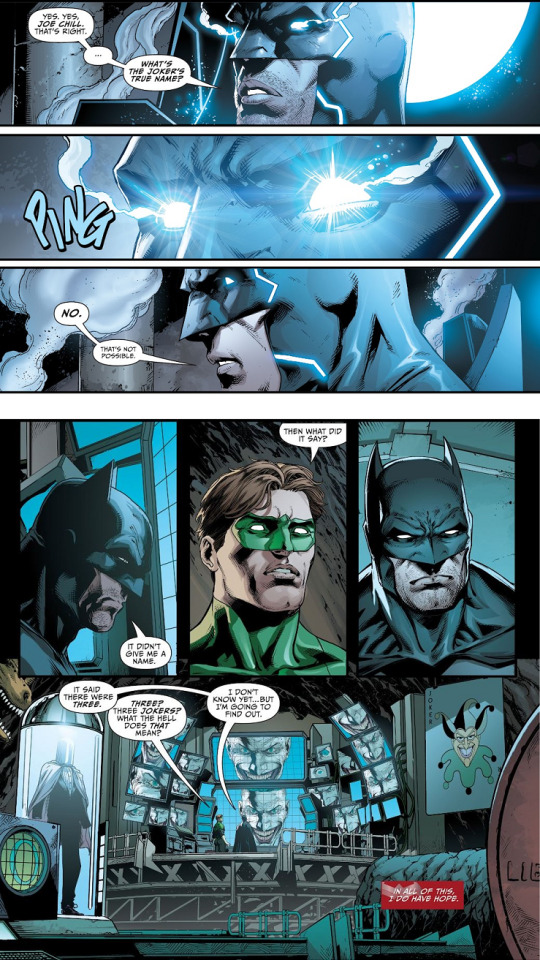
[Justice League (2011) #42 & Justice League (2011) #50]
Four years later, when Three Jokers was set to be released towards the end of 2020, Johns did at first confirm it would be canon despite being released via Black Label, where books are not meant to be part of the larger continuity. In later interviews, however, this assertion got walked back in favor of saying the canonicity is up to each reader, which is kind of a wild thing to say. "Look, this story merely proposes that one of our most popular characters has actually been three different dudes the whole time, which totally has a negligible impact on how that character should be seen and has interacted with the world. Take it or leave it!"
But then, DC's idea of canon has been pretty squiggly of late, especially with the increasing multiverse shenanigans. In the final issue of Dark Knights: Death Metal in 2021, the reader is told, "with our past finally set, myriad new futures are opening up. And as hypertime heals, we'll likely experience flashes of them– and even alternate pasts– in pretty epic fashion." Infinite Frontier followed, with a press release declaring, "When our heroes saved the Multiverse from Perpetua in Dark Nights: Death Metal, everything was put back where it belonged… and we do mean everything. All the damage from all the Crises was undone [....]"
I have a lot of thoughts about this, revolving around what the heck does it mean for storytelling and how we should understand characters that apparently, somehow, everything is canon? How are we supposed to take this as anything other than the omniverse being an excuse for DC Editorial to wave off responsibility for a legible timeline? "Batman can be in two places at once because, uh, the Monitor sneezed?"
But this too-long essay is about Three Jokers, so I'll narrow my concern: if character histories can simply change with a multiversal glitch, in whatever overwrought way those are usually explained to us, then it sure feels like it doesn't matter that Three Jokers was published under Black Label. It sure seems like, at whoever's whim, Three Jokers can still get locked into the main storyline. I mean, Zdarsky still hasn't explained what that three Jokers shit in Batman #135 is about. On the other hand, we know that the explanation for the two Jokers in The Man Who Stopped Laughing does not involve the multiverse, and Joker is supposed to reunite with Batman over in Zdarsky's story when that story closes out, so… I actually have no reason to be confident that means anything.
"But why would Three Jokers getting canonized be so bad?" you may ask if you've never read Three Jokers (or if you fully enjoyed it).
Speaking for myself, it starts with the premise: taking a character and saying, "actually, this is not one complex guy but three different guys, which fractures the character's motivations and relationships over the last several decades." When that character is one you enjoy very much, this twist is not fun. It's a fundamental change to who they are.
Then five months before the release of Three Jokers #1, Johns and Fabok did an interview with Entertainment Weekly. Some things the pair said raised red flags:
1) Three Jokers' story would focus on the trauma that Barbara, Jason, and Bruce suffered at Joker's hands, per Johns. "If you suffer some trauma, you don’t just get over with it and move on with your life, it changes who you are. Sometimes it changes you for the better, sometimes it changes you for the worse. You can heal right, and you can heal wrong. That’s really what the book’s about: Healing right, healing wrong, and surviving."
2) Johns also said of the story: “It goes back to the beginning when Batman first encountered the Joker, but it’s also The Killing Joke and A Death in the Family that speak to the book and that we’re building off emotionally." And Fabok mentioned that the book's look would be based on the aesthetics of The Killing Joke: "I really want it to feel like it could be a spiritual sequel, at least artistically."
These remarks foreshadowed a disconnect. A key part of The Killing Joke itself is that both Joker and Bruce experienced terrible trauma ("one bad day"), but in responding to it, they made different choices: broadly, Joker choosing to hurt people versus Bruce choosing to help people. Johns excluding Joker from his comments about trauma felt like a sign that he ignored a key part of the character, despite Joker being a core part of a new tale "emotionally" inspired by TKJ.
(We're setting aside "you can heal right and you can heal wrong" for now. Ohhh, we'll get back to that.)
Johns' blind spot was confirmed a few months later when he was quoted by the DC Nation Twitter account: "There are very few characters that are, to me, as irredeemable as The Joker. There is nothing in him that is good."
Wow, what close analysis from Mr. Emotional Build.
Look, I don't need Joker to be redeemed or woobified. (Ask me about the "Pushback" storyline from 2004 and hear my gnashing teeth crack a filling.) But I would like the full breadth of his character acknowledged, especially when you're claiming you're writing about trauma, especially when you're creating a "spiritual sequel" to one of best known Joker stories (if not the best known one).
Then Three Jokers finally came out, and over three months it proved to be neither an examination of healing nor very interesting, at least not in an enjoyable way. What it has to "say" about trauma, for any of the characters, is no different than the limited conclusion made in previous Batman books: mainly the drumbeat of fighting off the darkness by being a bigger person— or at least not killing your enemy. Making Joker into a role played by three different people adds nothing; it amounts to little more than a gimmick.
Hell, even as a gimmick, it's flawed. Theoretically, the three Jokers represent phases of personality the Joker has embodied over the years— but the representations we get don't make sense. Here they are summed up in Book 3:

Sorry, what? The Criminal is less interested in theatrics? In what time period was the Joker ever not interested in making a big show of things in one way or another? Maybe this is supposed to be an "early" Joker in terms of the Rebirth/InfiniCrisisDarkCarnateTier/whatever more recent conception of him, but I'll wager that's not what people think about when they think of Joker at his start. They think about Golden Age Joker doing goofy shit and laughing maniacally. They're not expecting this morose man.
The other thing is that, in Book 1, the narrative "assigns" each of our three protagonists to a Joker: Bruce to the Criminal, who appeared at the start; Barbara to the Comedian, who shot her; and Jason to the Clown, who killed him. Now at first I thought Johns was saying one Joker took over after another, but since Barbara's attack and Jason's death happened 9 months apart in 1988, which are not different Joker eras, I think we're supposed to see them as sort of… cycling on and off depending on the needs of the scheme? Maybe? But the descriptions above are still confusing. Why am I supposed to see the Joker who got carried away with the fun of beating Jason with a crowbar and successfully blew him up as less sadistic than the other one?
Johns does appear to lampshade this confusion in the middle of Book 1, when we get all three Jokers in a cabin in the woods. The Clown and the Comedian have this exchange:

This and a later panel with the Comedian actually imply that he and the Clown are interchangeable, even though they're supposed to be different. So are they or not? Is there an actual reason we need three Jokers, or did Johns just think it was a neato idea and then spend four years trying to figure out a "layered" justification for it?
The other thing about this cabin scene, and about the Joker trio largely, is that it should be fun and it's not. There should be chaos! Zaniness! At the very least, all the narcissism in the room should generate a competitive friction, make their interactions more dynamic. (Really it should generate bloodshed and end with one man standing within like ten minutes, but I'll grant the choice to save that for Book 3.) Instead it's almost mundane. The cabin isn't even decorated! It's dark and dreary, like the Jokers are dark and dreary. If we're gonna have three Jokers, can't they at least be Jokering with each other?
The same thought comes when I consider the very beginning of Book 1. It all starts out like a typical Batman story: three deadly crimes are committed in one night, the Joker seemingly responsible for all of them, and Bruce, Barbara, and Jason are drawn together as they try to figure out what's up. Of course, thanks to the Magic Chair, Bruce already knows there are three clowns, but Barbara and Jason are thinking that Joker is working with two look-alikes to create confusion. And considering the basics of what happens in this story, what the Comedian's larger plan is meant to accomplish, why couldn't this have been written with just two look-alikes? I mean, yeah, it would require Johns to forget about his continuity bomb, but maybe the story would have been better (and shorter). Again, the creation of other Jokers isn't doing much for what the plot is getting at. The three crimes that start us off would still serve the function of reminding Bruce of how Joker's been a constant in his life. The taunting of a convincing Joker look-alike is enough to set off Jason's anger and sadness about what happened to him, and his fears of what he could become. The climax with Joe Chill would have to be redone, but the threat of him being Jokerized isn't the crucial plot point; the Comedian's film of him is. Bruce doesn't even have any substantial thoughts about there being three of his nemesis.
But, alas, the story goes how it goes. And as it goes, we also see that Jason behaves more cruelly in his search for Joker than Barbara and Bruce. For example, Jason attacks and threatens one of Joker's victims to get information, feeling justified because the guy has a rap sheet, while Barbara scolds him and Bruce tells the victim, "I'm sorry this happened." What I find notable about this is that while comics regularly present Jason as hot-headed and Barbara as reasonable, Bruce… uh… If you gather a random selection of Batman comics, you'll find that his level of violence is all over the place. This story, however, requires a more somber Bruce, whose violence is more reactive, because Jason and Barbara serve Johns' dichotomy of "heal right" versus "heal wrong." We can't have Bruce on the sadistic side of the scale fucking that up, and besides, Jason's long been the posterboy for healing "wrong."
That notion comes to a head at the end of the issue. The heroes have encountered and subdued the Clown at the aquarium when Jim Gordon calls. The GCPD found another Joker, and Bruce leaves Jason and Barbara alone with the Clown to assist.

Goodness me, who could have predicted Jason might kill a restrained Joker? Not Bruce, who absolutely should have. Barbara is there to talk Jason down, sure, but what else is the Clown gonna do but needle Jason to kill him?

The Clown cackles then, declaring that Red Hood is his Robin, for the very reason of his violent impulses and how much he upsets the Bat, and of course Jason shoots him in the head, because oof.
Honestly, on this second read I found this scene a smidge too oof. Jason was a determined little Robin, dedicated to saving his awful mother to the very end, and him cracking and declaring that he'll work for a criminal… I don't know. I don't think it's impossible, but it feels superfluous. I don't think such a reveal is necessary to get Jason to fire. I think the Clown focusing on how the new Red Hood is actually quite similar to the old, as well as how Jason matters less than the neverending battle between Batman and Joker, is enough emotional stress to get to the same end result.
But that's a minor quibble; we've got bigger fish to fry! Such as the specter of the "healed right/healed wrong" dynamic that reappears as Barbara and Jason argue over the Clown's corpse.

Barbara leaves angrily after this, but man. I wish the story overall took more cues from this scene, that in a Black Label story we could stray from the simplistic idea of how a Good One would save Joker and a Bad One wouldn't. I want to explore Jason's assertion that Barbara didn't do her best to uphold Bruce's one rule. I want to know if maybe she's tired of being the fucking Good One.
Hell, let's go further: what if we were surprised by Barbara killing the Clown before Jason could? The Clown's taunting about Jason could have gotten to her too. We could have a story about how being put on a pedestal as a Good Victim is a cage, about Barbara struggling with falling from that position, about Jason feeling unsure if he should commend her for an act that obviously hurts her or comfort her for something he would have done himself. That's an actual examination of the struggle to process violent trauma— that you don't need three Jokers for!
But the story we have never gets back to Jason's suggestion that Barbara let the murder happen, not in this issue or the following two. This issue just ends with Jason hoping that the Clown was the actual Joker and that he didn't kill the wrong guy, which is a pretty "LOL oh yeah" line when you remember that he and Barbara don't know there are three Jokers yet.
Book 1, truth be told, isn't that bad. On my reread, I started to wonder if my only real issue with the story is that it's not as engaging as all the hype insisted it would be.
Then Book 2 starts, and goddammit. GODDAMMIT.
I've said it before, and I'll say it again: why can we not have more DC writers having fun with Joker's multiple-choice backstory? Why did Johns read The Killing Joke and decide his interpretation would be this?:
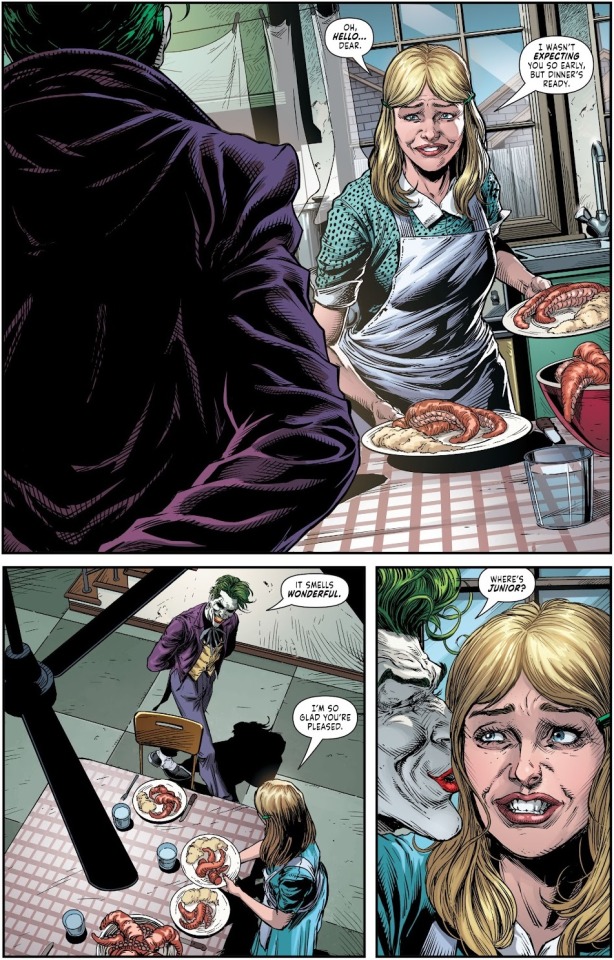
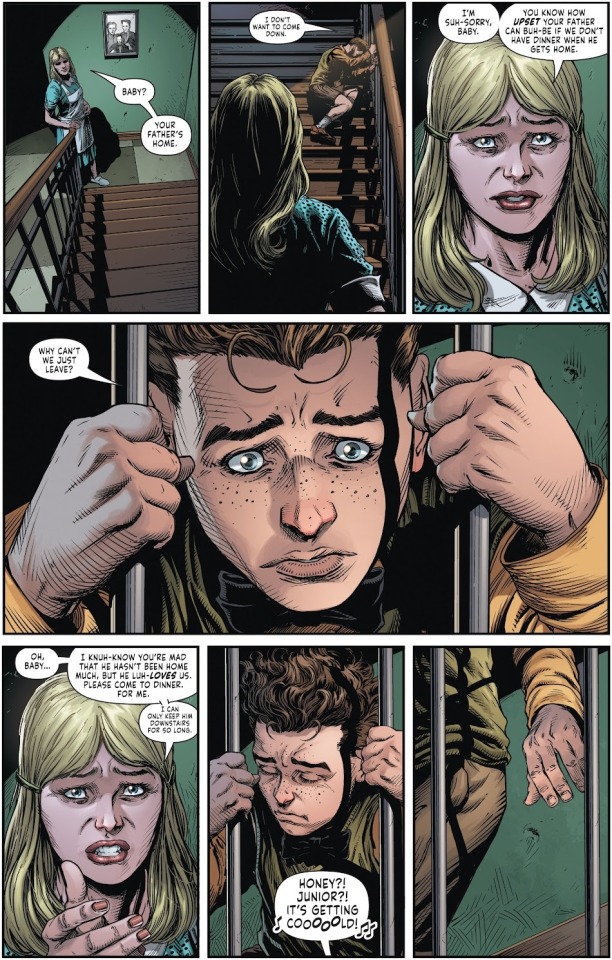
Ugh. UGGGHHH.
I don't recall the issue, but there's these panels that circulate sometimes of Harley Quinn encountering Joker in Arkham or prison, in which they exchange words about their relationship and he's a creep and she kicks his ass. I have no problem with Harley kicking Joker's ass. He deserves it. My problem is that those panels play out like an empowerment scene in a generic Lifetime movie. My problem is that it doesn't have the flavor of Harley and Joker. My problem is that it's lazy.
And that's my problem with what Johns does with Joker's backstory in TKJ. He could take it anywhere, and he goes gritty without an ounce of nuance. Because hey, this is Joker, and "there is nothing in him that is good," right? We'll just ignore that one of DC's all-time classics, the one this garbage is ✨inspired by✨, has Joker reflecting on a past for which he is an unreliable narrator, but in which he laments how his comedy dream put his growing family in a bad spot, in which he desperately aligns with shady people so his family can be secure, in which he's devastated by losing the only person he has in the world and their growing baby. And these memories could be distorted or entirely fake, but what's interesting in TKJ is that Joker never tells anyone else about them, even in his big speech to Batman. The flashbacks are not part of an attempt to manipulate anyone or convince them his world view is correct. It's a tale in Joker's head that, regardless of the truth, deeply affects him. It's what drove him to go to horrendous lengths to prove his point, even if the point is wrong.
But fuck that, right? We're going lazy! We're going cheap! We're going with the Jeannie backstory, but actually Joker was only terrible to her. The Comedian fondly fantasizes about terrorizing her and their son, because he's 100% an abuser, because he must have always been that way, with not a single appealing quality that we need to reckon with as we so often do with toxic people in real life. Even the freaking stutter Joker had as he struggled with stand-up comedy is given to Jeannie. Seriously?
I cannot emphasize enough: fuuuuuuuuuuuuuuck this "take."
On the other hand, when the Comedian is brought out of his stupor, we do finally get something super funny:

At least we'll always have this panel of Joker eating cat food.
The Criminal only interrupted the daydream because he's mad the Clown is dead, and the Clown was so eager to be dead I thought it was part of their plan buuuuuuut I guess not. Then we jump to Bruce figuring out that the "Joker" that Gordon cornered is just another victim, a dead judge. Barbara appears to tell Bruce what Jason did, and they discuss it over comms on the road.
Bruce, shockingly, says that they can't really do anything about what Jason did.
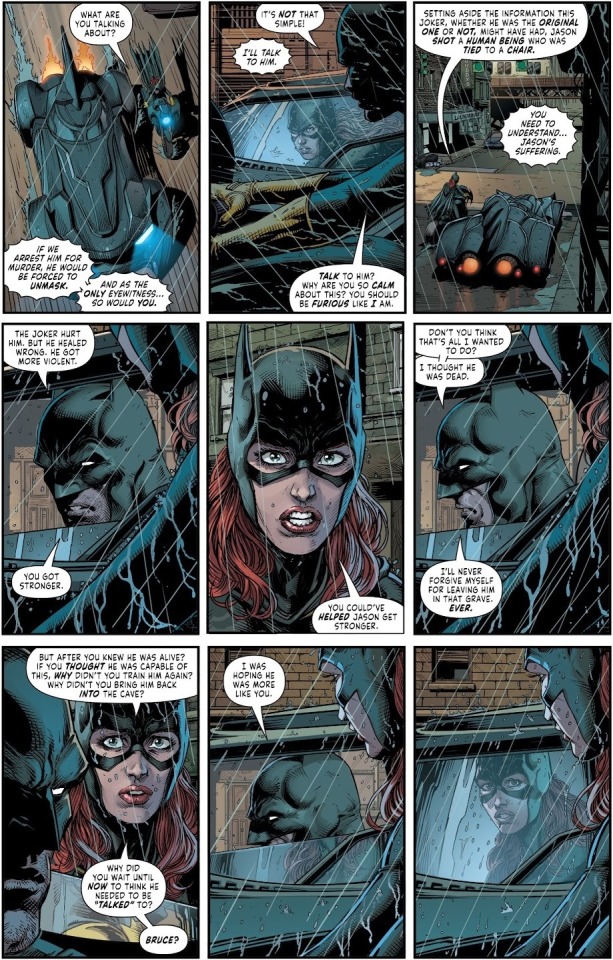
Pretty sure the guy who batarang'd Jason's throat rather than let him kill Joker would have a more intense reaction than this?? Or any reaction other than sober understanding? Maybe Bruce is still coping with finally dealing with three Jokers at once and will flip his shit when this all resolves. Or maybe he's just thinking, "it's okay, I still have two emotional support clowns left!" I don't know. He's so weirdly passive in this story.
What's more aggravating, though, is the other aspect of this conversation, that Jason "healed wrong." It would be one thing as a pat judgment Bruce is making, but we know from that interview that Johns positioned "healed right versus healed wrong" as the story's theme. It's not good. It's way too glib a framing for evaluating how people who've gone through trauma are dealing with it, in any context. Sure, there are better and worse coping mechanisms, better and worse outcomes, but healing is an ongoing process that can be so individualized. Reducing it to "right" and "wrong," saying that one is "strong" and implying that the other comes from some sort of deficiency… I hope Johns just spoke poorly and he does understand that it's not that simple.
Now, is it a stretch to apply that critique to Jason killing criminals at his whim? Sure, deciding that you personally should play the role of judge, jury, and executioner is not a good way to deal with trauma. But that's not exactly what's happening here. This "healed right versus healed wrong" framing is being applied to Jason Todd going after the Joker. Obviously, I like Joker, but can we be real about this? Can we be real in a Black Label book, the imprint where comic books (allegedly) have room to take things more seriously? Can we take the question of, "In this fictional world where Joker is an unstoppable fatal mayhem machine— now THREE machines— is it completely out of bounds for someone to finally kill him?" and be like, "Errr…not really?" When this story explicitly denies Joker even one teeny redeeming human quality, are we seriously still going to say, "Well, you know, if Jason takes the life of the man who murdered him and millions other people, because he doesn't want him to kill more people, which Joker will absolutely do and we all know it, doesn't that say something awful about Jason?" Are we really??
Plus the judgment about healing is put into the mouth of a man who— say it with me!— regularly dresses as a bat and beats the ever-loving shit out of people because his parents were murdered. Toning Bruce down in this particular story doesn't hide that.
Although, what I think is intended as a flawed assumption on Bruce's part is his other line, "Jason's suffering." It implies that Barbara still isn't, but we are shown Barbara reflecting on her paralyzation, even now when she's "strong" and has healed "right." And the story will get into this a bit later, but it absolutely does not let Barbara and Jason escape the dichotomy. To the story's detriment, their interactions go in a wild direction, but we'll get to that.
First, Bruce and Barbara's investigation leads them to Blackgate, because the fingerprints on the murder weapon for the dead judge belong to none other than Joe Chill. However, we learn that Chill has been in the medical wing for two months because he's sick with cancer.
Meanwhile, Jason's investigation leads him to a closed athletic center. The pool inside is filled with the chemicals stolen from Ace at the start of the story, as well as dozens of pale naked bodies with green hair. Jason's attempt to contact Barbara is interrupted when one of said bodies bursts to life and grabs his ankle, asking for help. Jason reacts with hostility, kicking the poor guy, and I'm not sure if it's because he's unnerved by a room of floating Jokers or if it's pretty normal for him to not keep his cool even for the sake of an obvious victim of a horrible crime. A Gotham City vigilante can't be that shocked by one guy being alive in a pile of bodies, can they?
But that's all setup. When the guy falls unconscious, the Criminal and the Comedian ambush Jason and drag him away, one saying, "He'll be perfect."
It's a line that meanly gets your hopes up, poking at a subject that could make all this more interesting.
Jason awakes, strapped to a chair and as naked as the bodies in the pool. The Criminal says he and his pals have spent a lot of time trying to find the perfect candidate for a new Joker, and he repeats the question of what's up with Jason taking on the Red Hood moniker.

It seems that, like DCAU Tim Drake in Batman Beyond before him, Jason Todd will be transformed into a fourth Joker! But it won't only be because it will wreck the Batman. It'll be because Joker already sees himself in Jason. This is something new to explore! There are places to go here; other comics hinting at Joker's past point to him having a childhood not dissimilar to Jason's, of growing up on the street, experiencing abuse, and learning unpalatable ways to survive. We could see Jason struggling with the possibility that he has more in common with Joker than he wants to think about!
But we won't. Inexplicably, the Criminal turns around and says that despite their similarities, despite Jason hating Batman as much as he does, despite the Comedian (presumably) saying Jason is perfect, and despite getting Jason ready for the pool, Jason actually isn't good enough, not "bright" enough. (Because all the Jokers we have in this dour story are so bright?)
And then the Comedian just beats the hell out of Jason (saying it's more fun than the first time, in another annoying nod to how he and the Clown are the same damn Joker) and says they're leaving Jason alive because maybe he'll prove them wrong and he'll become a new Joker after all? But the current Jokers aren't really going to go for it. Their interest is just abandoned.
The point is only to freak Jason out, so when Bruce and Barbara arrive, fight a horde of Jokerized victims, and find Jason alone and naked and vulnerable, he does not react well when Bruce tries to ask if he's okay. Jason turns on him and blames him for setting him on this path, for leaving him in the dirt, for replacing him easily. He lashes out at Barbara too, asking if she's going to lock him away, but ultimately it's easier to take comfort from her.
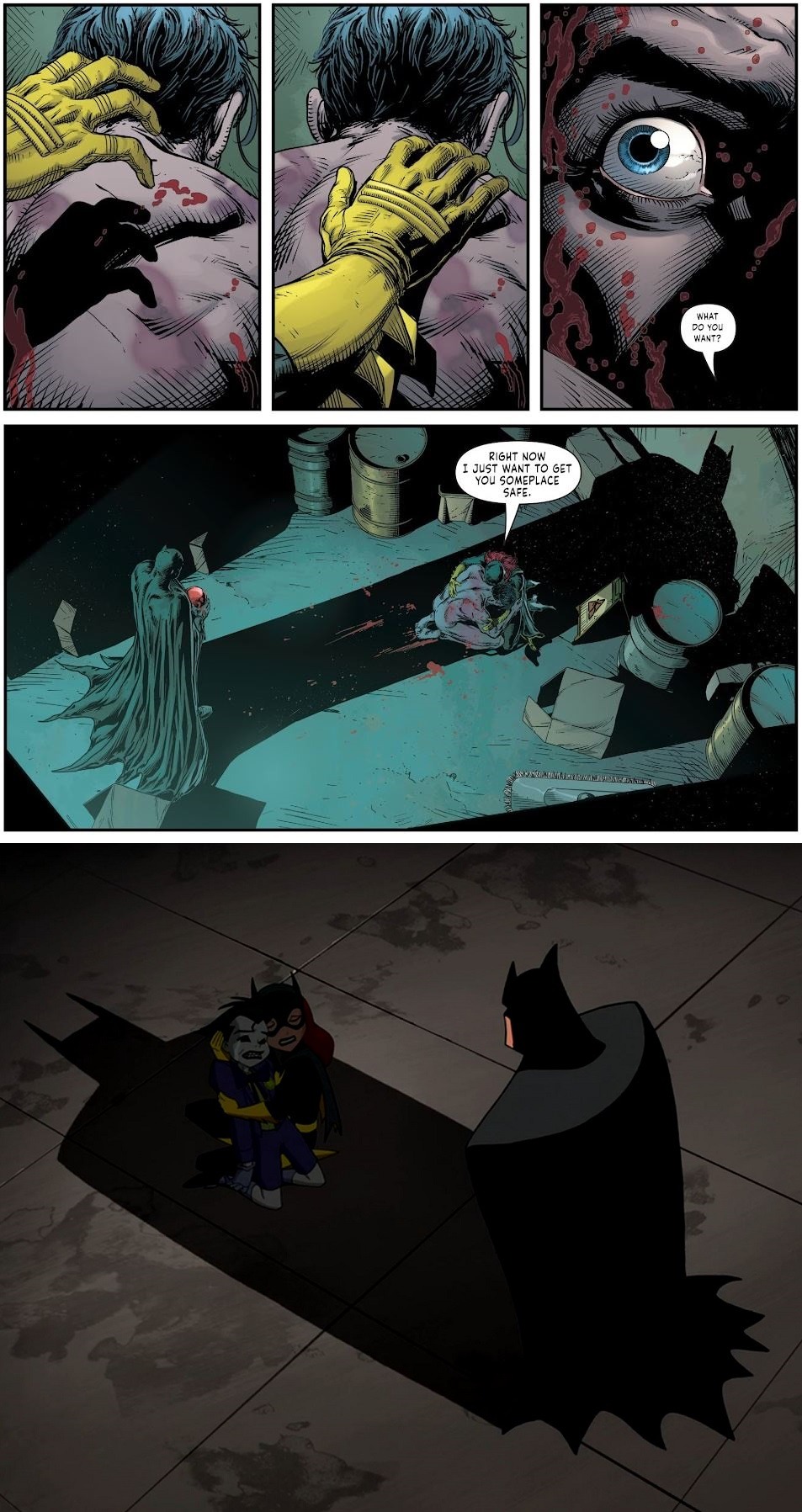
A direct reference to Return of the Joker here, focusing on the shadow Batman casts over the lives of his partners, the responsibility he bears in how Joker targeted them to hurt the Bat, and how poorly he offers comfort himself.
It does segue nicely into the next scene, when Bruce and Barbara get Jason to her apartment to rest. Bruce leaves to keep investigating, and Barbara is pissed because this is the exact lack of support that contributed to Jason going his own way. Support is highlighted again when Jason wakes in Barbara's room and looks around.
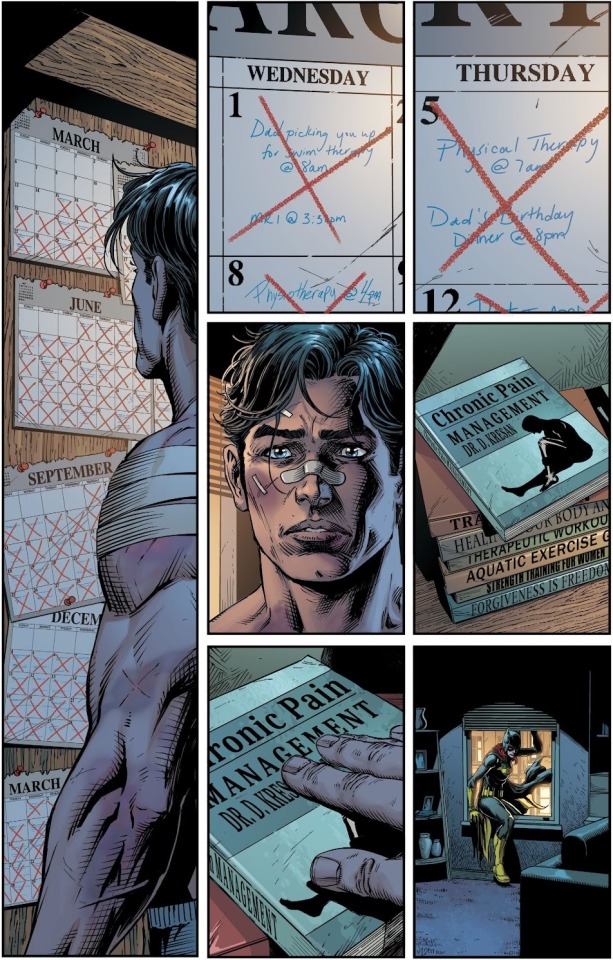
Aside from Barbara seeking out books to deal with her physical and mental struggles after Joker's attack, the old calendars show the help she received from her father and health professionals.
And this scene does get into something that's missing from TKJ, in which Bruce tells Joker that no, not everyone will retreat to madness like he did. How we react to trauma is greatly affected by the resources available to us.
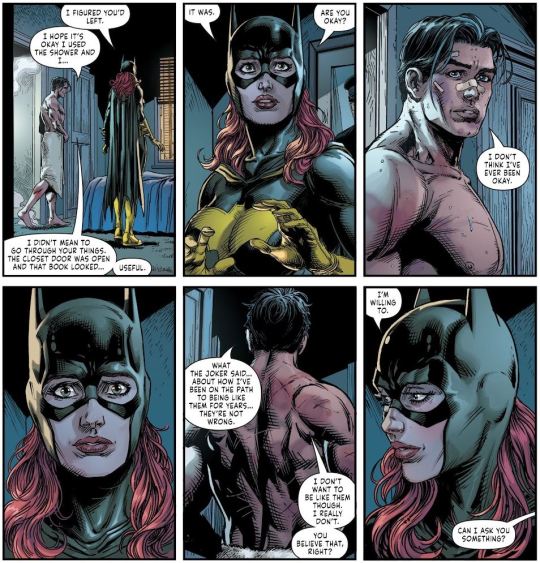
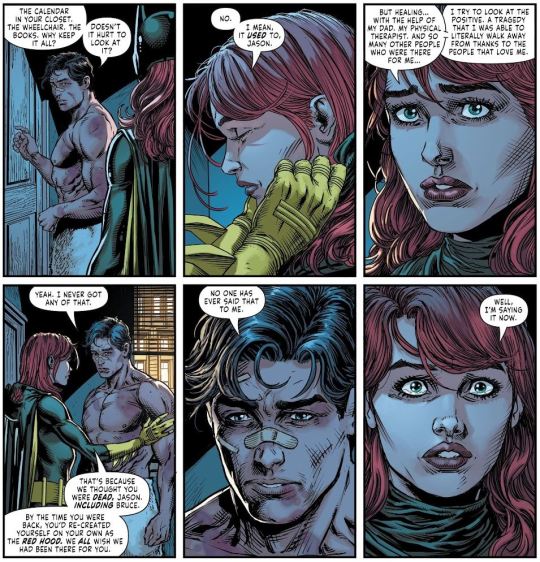
This scene is nice. It's nice to come from the action to some place quiet and for someone to say this Jason, something he's wanted to hear. It's late in coming, but it's pain validated.
And then Johns fucking ruins it.
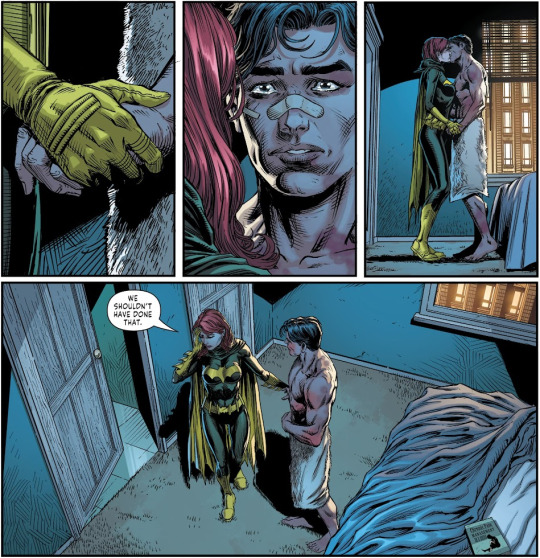
Man. Just. Ugh. Yeah, I know people seek comfort in moments of vulnerability, but… the reader knows. The reader knows moments like this aren't included to be like "oh, this was an isolated blip of human behavior! The story won't call back to it later!" Johns apparently wants Barbara/Jason to be a thing. And if you want a solid reason for that… well, we don't get any good ones.
Meanwhile, Bruce is in the cave, and I'm only mentioning that because these folder labels are incredibly funny:
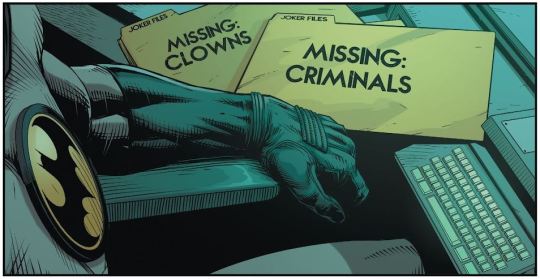
Then the issue ends with Joe Chill kidnapped from Blackgate by the Comedian, who has a video camera and asks him to talk about why he really killed the Waynes. Dun dun dunnnnnnnn! Is that a twist on the way?! Well, yeah, but not really the one you think and it's incredibly stupid.
Finally we are at Book 3. Jason is suited back up, and he and Barbara have met up with Bruce in the cave to figure out how the Jokers plan to create another, better Joker.

Soooooo Jason and Barbara had that whole conversation. Jason was shaken by what the Jokers said to him. But now he's completely back on track. Allllllrighty.
Jason and Bruce then have an argument rehashing everything that Barbara said she was sorry Jason experienced, with Bruce saying of course he'd love to kill the Joker, and Jason pointing out that he obviously hasn't. Jason also says he thinks the only reason Bruce isn't turning Jason in for killing the Clown is to protect Batman's identity. Barbara just tries to de-escalate with her doe eyes. They're back to the status quo, and it sucks, which is the point. When they try to get back to the investigation at hand, Bruce pauses and attempts to apologize.
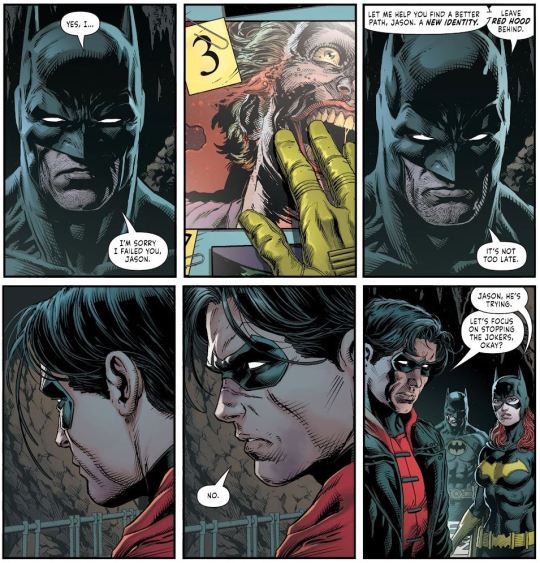
And again, with this blatant TKJ reference, it feels like we need to dig into the parallels between Jason and Joker! They both insist it's too late! They won't take help! But surely Jason isn't as far gone! There's something to chew on here.
But nah, this story is heading toward a big ol' revelation, foreshadowed here:
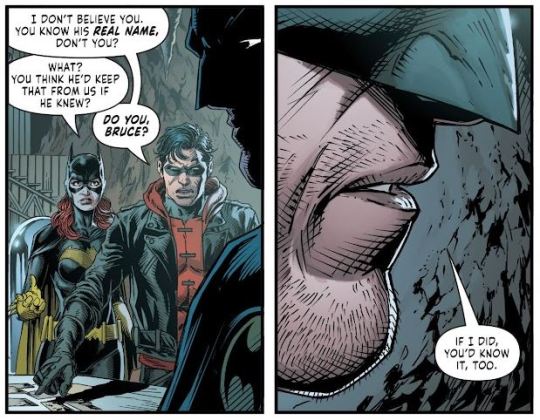
🎶 Why the fuck you lyin'? 🎶
Finally they get the alert that Joe Chill was kidnapped, and on investigating his cell, Bruce finds a bunch of letters addressed to… himself, Bruce Wayne. He seeks out the prison reverend.

Which is unintentionally hilarious, because in the storyline that started this whole three Jokers nonsense, there's a Batman Darkseid War one-shot where Joe Chill's behavior does not remotely align with this.

Lol comics are fun.
In the middle of Bruce investigating the letters, we get Jason being all repentant with Babs again.

You just said? You totally were?? Gonna kill more clowns??? How is this supposed to come off as genuine? Granted, Jason doesn't try to kill the other Jokers after this, but the apparently impetus for reversing course is... uh... we'll get there.
Anyway, among Chill's letters are tickets to the Monarch Theater, so the heroes all head over for whatever the Jokers have set up for them, which of course includes another horde of failed Joker zombies. During the fight, the Comedian's interview of Joe Chill plays on the screen, and the Criminal reveals they have Chill tied up in a chair suspended over a vat of green chemicals.
As Chill on screen explains that he killed the Waynes out of hatred and envy for how much they had, and how much he regrets his actions, the Criminal explains that he considered both Jason and Barbara as strong candidates for the new Joker. And wait. WAIT. Mr. Johns, sir, are you telling me it crossed your mind to write a story in which Barbara becomes the new Joker? That's so much more interesting than the bullshit we're getting! Imagine it: Barbara dealing with the dissatisfaction of being the "good, strong victim" and just losing her shit. You could combine that with how uneasy Jason is with his similarities to Joker, and maybe Jason is the one who convinces Barbara to turn back. This is Black Label! This could've been anything! Anything!
But we've got Chill. And the Criminal goes on to say the reason he wanted to make a new Joker at all:
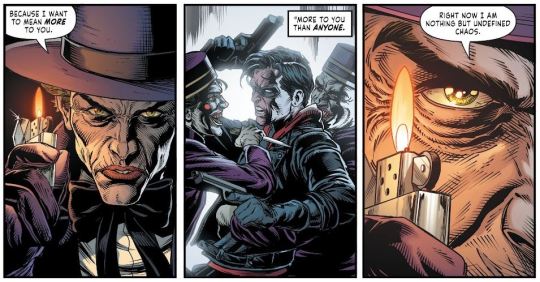
Are… are you? I'm pretty sure Joker is pretty well fucking defined. He's a murderer with a very dark sense of humor who is obsessed with Batman. That's been a pretty good through-line.
Also, Joker pretty clearly means a lot to Batman, as that middle panel with Jason seems intended to remind us, but the Criminal does clarify that he wants to be "everything" to him, which is why he's pulling Bruce's parents' murderer into all this. I guess I can't blame him for reaching for the stars?
Cue big fight scene. The Chill recording continues to explain his regret, and soon the theater is on fire. Batman saves Chill and knocks the Criminal unconscious. Chill thinks Batman is going to kill him, but Bruce saves him from a falling brick wall instead— before the Criminal revives and tries to set off a bomb to kill them all, maybe. There's a BOOM flag sticking out of the dynamite a few panels later, after the Comedian shows up and shoots the Criminal in the head. TWIST!
The Comedian surrenders, and after a scene with Jason picking the most awkward time to suggest he and Barbara try being a couple and Barbara looking pissed she has to tell him no, we jump to Bruce and the Comedian in the armored police car.
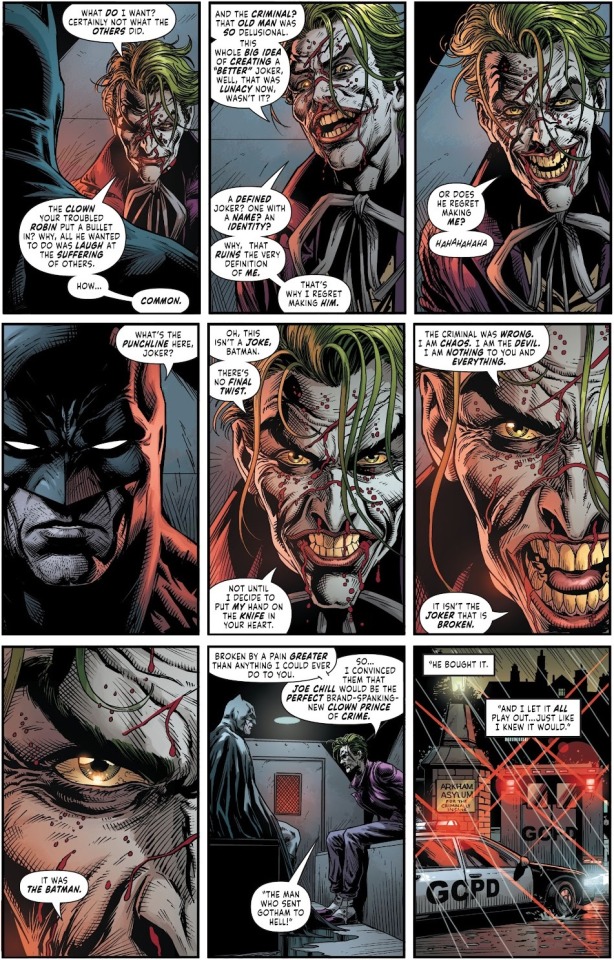

As a batjokes shipper, looking at these pages is weird, because they are good food for the brainworms. The Criminal wanted to engineer a Joker who meant the most to Batman, but the Comedian wanted to be that Joker. It's a weird plan, considering that Joker prefers Batman over Bruce Wayne, so he would be more likely to not want to heal Bruce's wound lest the healing lead to less Batmanning, but still. This crazy plan is all about maintaining Batman's attention.
But I can only enjoy these panels out of context, not just because I'm pretty weary of insanely elaborate plans that manage to work out, but also because there's just so much to hate in the rest of the story, especially the real twist that closes it out.
Before we get to that, though, we're thrown back into the Jason/Barbara nonsense with a very gross letter he writes to her.
"Dear Barbara, I want to make a change. But I can't do that without you. I know I've come across cold and distant…"

1) Look, love can help people heal. Barbara could be a good friend advising Jason on what might help him. She could help bring him back into the batfam fold. This letter is not that. This letter is pushing someone to be in a romantic relationship with you for the explicit purpose of getting them to heal you. That's not how love works. That's using someone as a tool. It's supposed to be sad that Barbara never sees the letter but it's good, actually. Don't put that shit on her!
2) This romance came out of freaking nowhere and now we get Jason insisting he can simply stop being Red Hood for the sake of it— but only for the sake of it, apparently! Does Jason think his worldview as Red Hood is an impediment to healing or not? This is just surface-level melodramatic nonsense. And I wish that was the point, but no. Again, the letter getting swept away is presented as sad.
3) Speaking of which, who tapes a confessional letter that exposes your vigilante identity to a door where anyone can see it? You'd slip it under the door at least. Johns couldn't figure out any other way for the letter to vanish? Get out of here with this contrived nonsense. There should've been panels of Jason rereading the letter, realizing how unhinged it is, and throwing it away himself.
4) Is the "Funtime Cleaners" guy in his purple uniform supposed to be Joker? Or representative of Joker's influence on their lives? If yes and it's him, he's a goddamn hero. If it's symbolic, what does that mean, that even when you reach out to others… elements out of your control will keep you alone? 'Cause that sure is bleak for a book allegedly about healing.
With all that done with, now we get to the big twist, the dumbest fucking part of this story, the end, the takeaway. Of course it involves more crimes against The Killing Joke, which I'm increasingly convinced no one at DC has actually read in the past thirty years.
Bruce drives up to Alaska, and we get this reveal.
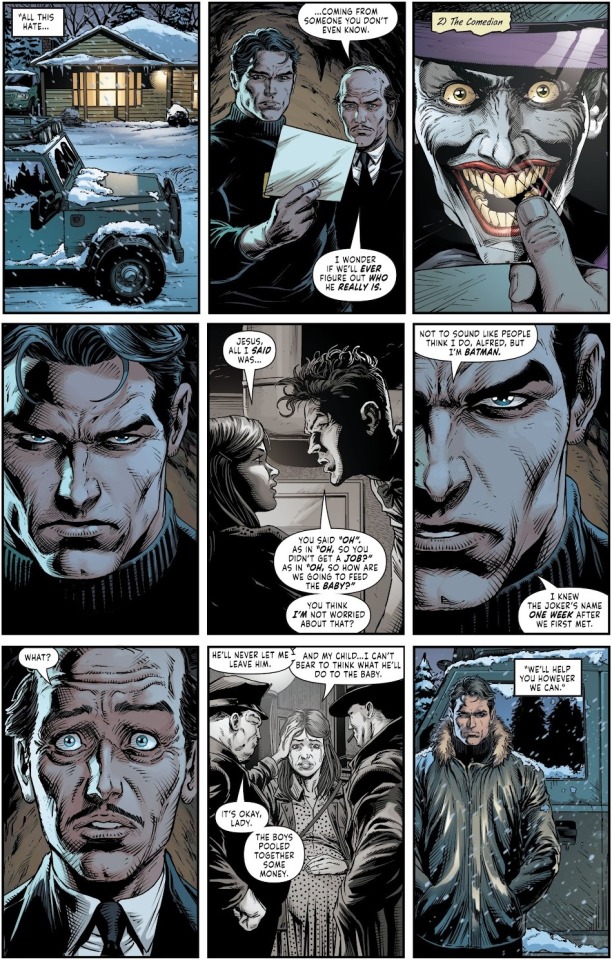

Do the kids still *headdesk* nowadays? That's what I'm doing. There will be a blood stain.
1) So Bruce has known the Joker's identity, or at least the Comedian's, basically the whole time. We're just retconning that the Joker question he asked the Magic Chair wasn't for information; it was a second test question. And all this is in the face of Bruce lamenting many times over the years that he doesn't know who Joker really is, of him lamenting it in The Killing goddamn Joke. "I don't know him, Alfred. All these years and I don't know who he is any more than he knows who I am. How can two people hate so much without knowing each other?" We're just. Fucking excising that. A line alluding to Bruce's motivation for visiting Joker in TKJ's opening scene.
2) We're rounding out the lazy revisions to the TKJ backstory with some copaganda! Geoff Johns doesn't think it's possible for Joker to have been anything but a horror to his family, but he does think it's possible that random officers in the friggin' Gotham City Police Department— in early Batman lore no less, when they were at their most corrupt— would fundraise for a "lady" they clearly don't know to get her out of the city to safety. Also, what was the plan for when Joker asked to see his wife's dead body?? Congrats, you've come up with something dumber than "Pushback."
3) This scrawls more highlighter on how bad the premise of there being three Jokers is, because the flashback in TKJ happens before Joker starts out. Like that's how Bruce always recalls it; he didn't meet the Joker until after what happened at Ace Chemicals. So isn't Jeannie then actually the Criminal's wife? Because the Criminal is the one who behaves as Bruce remembers Joker was at the start. So is the Comedian obsessed with the Criminal's wife for some reason? Or is the Comedian actually the first Joker, and the Criminal came later and used to be more wacky? What is going on here?
Under all these questions, per the final page, the point of Three Jokers is still visible: ultimately, his victims matter more than he does. But that's a hilarious point to a story that revolves around three of the guy, with very little payoff to the gimmick, and when part of the plot is that the heroes still shouldn't kill him.
And again, just because a story makes reference to healing, it doesn't mean it's "about" healing. The most we get is the knowledge that Barbara and Jeannie received support from other people. There's no discussion of how long it took either of them, of why Barbara came out the other side not wanting to kill Joker, of anything Jeannie has done since she left Gotham. The possibility that Jason could find connection is promptly throttled by a forced romance. It's implied that the Comedian's plan worked for Bruce, as we see Bruce at Chill's deathbed, holding his hand, and at Chill's grave. You might be interested in Bruce's thoughts as he juxtaposes Chill's repentance against the fact that his parents are still dead, so you can assess if this really would affect the feeling of loss that drove him to his lifelong mission, but you won't get them. The "how" of healing is up to the reader— who is never asked to extend the same thought process to the Joker. And you personally do not have to give a crap about Joker, but again, if this book is supposed to be about responses to healing, about Jason's response versus Barbara's, then taking an actual look at Joker feels relevant!
So there we are: fourteen pages of me venting my little heart out, hoping the premise of Three Jokers never gets looped into canon. I'm well aware that my personal attachment to a character means nothing against DC's incentives to promote stories with Big Twists (and endless events and multiverse bullshit), but then again, those incentives are based on what people will buy. So if I can add to the voices saying that Three Jokers is bad, and you should not spend your money on it or books like it, maybe I can be one vibe of many that keeps the Joker as one single bat-obsessed murderclown...
Though if not, I can always retreat to older comics. I still have plenty of those to get through.
#three jokers#the killing joke#batjokes#batman#joker#bruce wayne#barbara gordon#jason todd#analysis#my jibber-jabber#tl;dr three jokers is just usual batman stuff with a dumb gimmick#and jaybabs thrown in for the lulz
117 notes
·
View notes
Text

I put my dread of ai art into a meme form
i call it..
THE KILLING MEME!
30 notes
·
View notes
Text
If The Joker ended up staying Jack Napier and his kid and wife did not die he would raise that child to be a goof and tell the absolute worse dad jokes
#schemes#reports#I'm not wrong#batman#joker#the joker#dc#dc comics#jack napier#the killing joke#sorry I'm thinking of angsty joker do not mind me#there is not enough jack napier/reformed joker on this god damned website
22 notes
·
View notes
Text
Do you want to know how he got these scars? This week, Emily and V take a trip to Gotham City to look back at Alan Moore's Batman magnum opus, The Killing Joke. While it garnered tons of accolades for its darkness, grittiness, violence, and portrayal of The Joker's semi-definitive backstory, The Killing Joke has also received a lot of (totally warranted) criticism for its darkness... grittiness... violence... and misogyny. The history and continued legacy of what happened to Barbara Gordon in The Killing Joke is complex, dark, and hard to reconcile. Oracle was a badass character who represented a deeply underserved portion of the DC Comics audience; however, Gail Simone kind of had a point that it was metatextually misogyny keeping Babs in her chair. DC's choice(s) surrounding Barbara have no easy answers.
However, your intrepid hosts do find a light in the dark-grim-grittiness of Gotham as they discover (create) its worst strip mall and the heroic citizens who brave its potholes...
This Week In Fandom History is a fandom-centric podcast that tells you… what happened this week in fandom history!
#fandom#fanfiction#batman#dc comics#dcu#the joker#oracle dc#batgirl#barbara gordon#babs gordon#the killing joke#fandom podcast#this week in fandom history#Spotify
23 notes
·
View notes